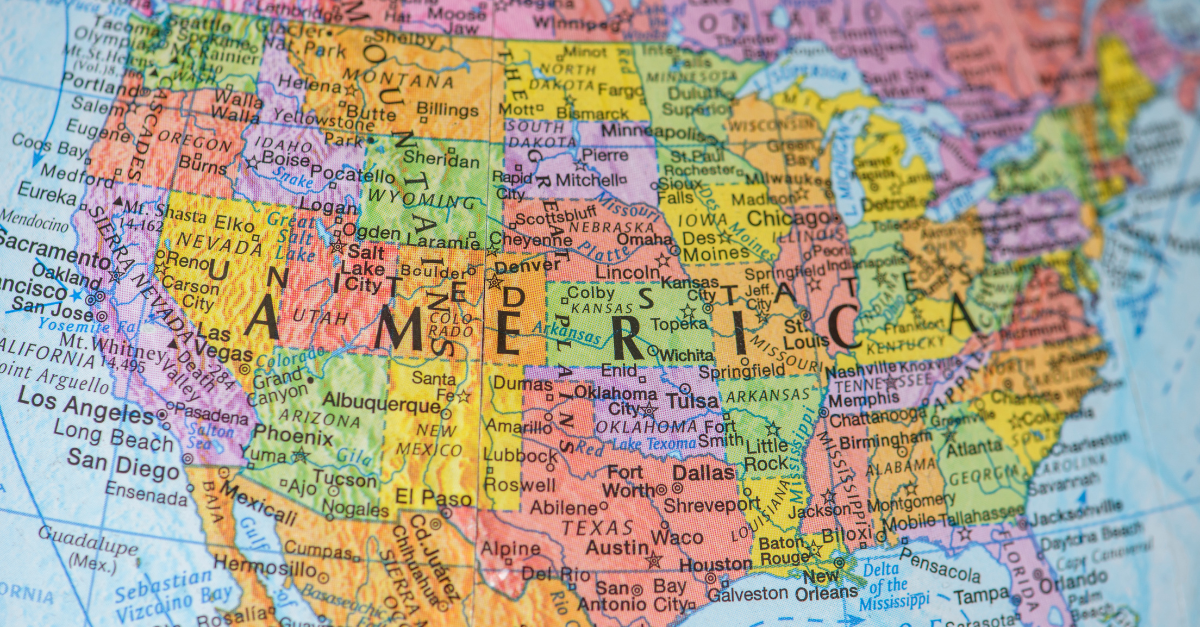-1.png)
Why does getting to grips with state-to-state payroll withholding matter now more than ever?
Exacerbated by the after-effects of the pandemic, many US states are facing budgetary shortfalls that they are urgently trying to address. These include some of the most heavily populated states, like Pennsylvania, New York and California. This has led to some states becoming increasingly assertive about enforcing which employees are subject to tax in their state. For example:
- New York and Massachusetts have both been pushing to collect from local businesses with remote workers in neighboring states.
- Tax authorities are conducting audits more frequently and giving themselves longer to do so. Anecdotally, businesses in San Diego can expect a California State payroll audit once every 3 years.
- Certain states are now quick to levy interest and impose steep penalties on businesses that are not meeting their payroll withholding obligations. Penalties in New York can be 5% per month up to 25%.
Businesses can create significant liabilities even for unknown and unintentional violations - a possibility made increasingly likely with the return of business travel and the increase in remote working practices.
With US states more forcefully expanding their tax bases and companies dealing with the effects of highly geographically dispersed workforces, many businesses have realized the critical importance of gaining visibility into where work is actually taking place. This is no mean feat when employees are working from a wider range of places than ever before.
What scenarios do you need to consider?
From a payroll and withholding tax perspective, some of the compliance challenges of employees working in multiple US states have been around since business travelers first started crossing state borders.
Businesses need to be aware that very typical day-to-day activities can create payroll and withholding obligations. For instance:
- Your employees are in other states on business trips, working on a project, attending training or going to conferences.
- Your sales team is in other states selling to businesses, or attending conventions and trade shows.
- Your employees are installing or conducting training on a product in other states.
- Your employees with regional roles are working in different states
- Your employees are working remotely in other states.
The problem is that as businesses start to develop more of an interstate presence, multi-state payroll consequences are not always front of mind.
What are the requirements you need to be aware of?
As a general principle, US states assert the right to tax employees on income earned in that state. Furthermore, businesses are required to withhold taxes and to register with the tax collectors in those states. Where there is an obligation to withhold in more than one US state, this is known as a multi-state payroll obligation.
Complications quickly arise as the threshold at which businesses must operate US state withholding varies considerably and is typically expressed in relation to days spent working in each jurisdiction by the employee. For example, California requires that all wages earned in California be subject to withholding from day one. In Illinois, it is when the employee works, or is expected to work, for 30 days in the state. And for Hawaii, it is 60 days.
It is important for businesses not to confuse when they must operate US state withholding with when your employee becomes subject to tax in that US state, as these may be different. For example, in New York, you are not required to withhold state taxes until your employee works or is expected to work, more than 14 days there. In contrast, your employee may need to file a New York State tax return to report wages from day one.
You will need to focus on the following taxes in those US states where you do have a payroll withholding obligation:
- Personal Income Tax
Required in those states that tax employment income.
- Disability Insurance Tax (SDI)
Five states - California, Hawaii, New Jersey, New York and Rhode Island - require employers to withhold temporary disability deductions from employee wages in order to maintain the states’ temporary disability insurance (TDI) benefits program.
- Unemployment Insurance (UI) Tax
While many states consider UI an employer-only tax, there are three states that require employers to withhold UI taxes from employee wages and remit them to the state: Alaska, New Jersey and Pennsylvania.
- Workers Compensation Tax
Required in every state except for Montana, Nebraska and North Dakota where certain exemptions and Texas where it is optional.
- Paid Family and Medical Leave (PFML) programs
Residents of Colorado, Connecticut, Maryland, Massachusetts, New York, Oregon, Rhode Island and Washington are required to have PFML contributions deducted from their wages and paid to the proper state or tax authorities. Two states, Delaware and Wisconsin, have similar policies that will go into effect in 2025 and 2024 respectively.
Factors affecting payroll withholding requirements
While a business may have employees who live in one state and work in another, not all such situations will require tax withholding from each of the states in question. We covered some of these elements (such as reciprocal agreements) in a previous blog post, but below is a quick recap and an expansion of some of the key considerations.
Places with no state income taxesThere are nine US states which do not tax employment income. In these cases, it will not be necessary to withhold payroll taxes for days worked in these US states. These US states are Alaska, Florida, Nevada, New Hampshire, South Dakota, Tennessee, Texas, Washington, and Wyoming.
Reciprocal agreementsCertain US states have established reciprocal agreements among themselves. A reciprocal agreement is an arrangement between two or more states that allows businesses to only withhold US state taxes from your employee’s home US state even if they work in a different US state. Generally (but not always), this applies to neighboring state scenarios where employees live in one nearby state but work in another. For example, Arizona has a reciprocal agreement with California. This means that if an employee is based in California but works in Arizona, the business can opt out of having to operate Arizona tax withholding.
It is important to note that not every US state has reciprocal agreements. Furthermore, reciprocal agreements do not apply to all neighboring states. For example, Illinois has reciprocal agreements in place with neighboring states Iowa, Kentucky, Michigan and Wisconsin, but not with Indiana or Missouri.
If there is no reciprocal agreement and your employee is working in a US state that levies, then your payroll team may need to withhold taxes for the US state where your employee is based and where your employee works.
Where to start?
As you can see from this quick tour of different state requirements, the payroll withholding situation is complex and the need to get it right to avoid penalties and interest is pressing.
To begin with, a good starting point is being able to map out answers to all five of the following:
- Which employees are working in different states?
- Where exactly are they working?
- Where do they normally work from?
- What business activities are they carrying out?
- How long have they been working in each US state?
While some smaller businesses may be able to track this data using more manual processes, larger organizations and enterprise-level companies with lots of business travelers and distributed workers will most likely need tools and technologies to maintain an up-to-date picture of where workers are located at any given time, the duration of that work and more. Topia’s solutions for business travel and distributed work are specifically designed for this purpose so that companies can feel confident that they are navigating this complicated environment with a focus on compliance.
Nothing in this article should be considered or construed as tax advice. Topia does not dispense tax advice and always recommends that taxpayers consult their accountants, tax advisers or lawyers.

.jpg)
